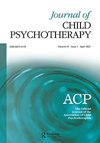Response piece to an article in issue 48.3 of this Journal by Judith Edwards: ‘The elusive pursuit of good enough fatherhood, and the single parent family as a modern phenomenon’
IF 0.8
Q4 PSYCHOLOGY, CLINICAL
引用次数: 0
Abstract
Judith Edwards’ article in the December issue of this journal surely comes as a breath of fresh air for all psychoanalytic practitioners working with children and families, and wondering how to accommodate thinking about the father. It is a rare contribution to the sparse psychoanalytic literature on the role of the father, and she takes a refreshingly open position, using existing ideas and presenting new ones. She opens by saying – ‘No answers are to be found here, merely more questions, and each reader will hopefully find their own questions and answers. New doors may be opened’ (Edwards, 2022, p. 362). In conclusion she says – ‘With Bion in mind, the conclusion is to come to your own specific conclusions, to work with specific cases’ (Edwards, 2022, p. 375). This brief reply, although making a point, seeks to keep the questions rolling. It is derived from my own work with children and families for whom the role of the father was unoccupied. That is to say, the biological male present at conception was either emotionally or physically absent, and the role of father remained vacant because no parent, of either gender or sex, single or couple, was able to fulfil it. This was partly because the parents I saw struggled to offer paternal function, the development of which was something I could help them with. However, I will argue here that there are some important aspects of the role of the father that only the biological father can fulfil. When this absence in role was also a feature in the lives of some of the adopted and fostered children I have seen, the impact of this non-occupancy was more complex. Whilst Judith deliberately does not present her ideas as ones to be grappled with academically, nevertheless, my clinical experience has led me to organise my reply around two ideas that appear to contradict one another. The first involves her response to a line from Shakespeare’s The Tempest in which the spirit Ariel tells Prince Ferdinand of the drowning of his father in near five fathoms of water. Ariel concludes that ‘Nothing of him that doth fade’. From this, Judith derives ‘how the memory of our own fathers lies deep within our minds, and our very bones, affecting the way we parent’ (Edwards, 2022, p. 363). The second idea involves her comment that ‘fathers, whether present or absent, and of either sex, are indeed important in the life of every child, in order to be the third point of the oedipal triangle’ (Edwards, 2022, p. 375). Whether Ariel, Prince Ferdinand, or ourselves, in my opinion Judith’s quote isJudith Edwards对《华尔街日报》第48.3期一篇文章的回应:“对足够好的父亲身份的难以捉摸的追求,以及单亲家庭作为一种现代现象”
朱迪斯·爱德华兹(Judith Edwards)在本杂志12月刊上发表的文章无疑给所有从事儿童和家庭工作的精神分析从业者带来了一股新鲜空气,他们想知道如何适应对父亲的思考。这是对稀疏的关于父亲角色的精神分析文献的罕见贡献,她采取了令人耳目一新的开放立场,利用现有的想法并提出新的想法。她首先说:“这里找不到答案,只有更多的问题,每个读者都有望找到自己的问题和答案。新的大门可能会打开”(Edwards,2022,第362页)。最后,她说:“考虑到Bion,结论是得出你自己的具体结论,处理具体案例”(Edwards,2022,第375页)。这个简短的答复虽然表明了一个观点,但试图让问题继续下去。这源于我自己对孩子和家庭的工作,对他们来说,父亲的角色是空缺的。也就是说,在受孕时,生理上的男性要么在情感上,要么在身体上缺席,父亲的角色仍然空缺,因为没有任何父母,无论性别或性别,单身或夫妻,能够履行这一职责。这在一定程度上是因为我看到的父母难以提供父亲的功能,而我可以帮助他们发展父亲的功能。然而,我在这里要说的是,父亲角色的一些重要方面只有亲生父亲才能履行。当这种角色的缺失也是我见过的一些被收养和寄养儿童生活中的一个特点时,这种不参与的影响更为复杂。尽管朱迪思故意不把她的想法作为学术上需要解决的问题,但我的临床经验让我围绕两个似乎相互矛盾的想法来组织我的回答。第一个是她对莎士比亚的《暴风雨》中的一句台词的回应,在这句台词中,精灵爱丽尔告诉斐迪南王子,他的父亲在将近五英寻的水中溺水身亡。Ariel总结道:“他身上没有褪色的东西。”。朱迪思由此得出“我们对父亲的记忆是如何深深地存在于我们的脑海和骨骼中,影响着我们为人父母的方式”(Edwards,2022,363)。第二个想法涉及她的评论,即“父亲,无论在场与否,无论性别,在每个孩子的生活中都确实很重要,才能成为俄狄浦尔三角的第三点”(Edwards,2022,第375页)。无论是Ariel、Prince Ferdinand还是我们自己,在我看来Judith的话都是
本文章由计算机程序翻译,如有差异,请以英文原文为准。
求助全文
约1分钟内获得全文
求助全文
来源期刊

JOURNAL OF CHILD PSYCHOTHERAPY
PSYCHOLOGY, CLINICAL-
CiteScore
0.70
自引率
50.00%
发文量
46
期刊介绍:
The Journal of Child Psychotherapy is the official journal of the Association of Child Psychotherapists, first published in 1963. It is an essential publication for all those with an interest in the theory and practice of psychoanalytic psychotherapy and work with infants, children, adolescents and their parents where there are emotional and psychological problems. The journal also deals with the applications of such theory and practice in other settings or fields The Journal is concerned with a wide spectrum of emotional and behavioural disorders. These range from the more severe conditions of autism, anorexia, depression and the traumas of emotional, physical and sexual abuse to problems such as bed wetting and soiling, eating difficulties and sleep disturbance.
 求助内容:
求助内容: 应助结果提醒方式:
应助结果提醒方式:


